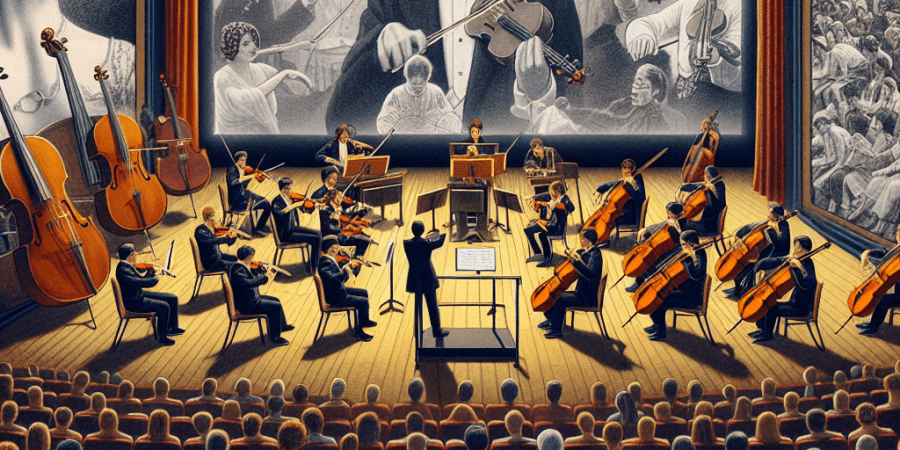Classical Music in Film: How It Enhances Cinematic Experiences
From the soaring melodies of Beethoven to the intricate harmonies of Tchaikovsky, classical music has long held a revered place in human culture. But did you know it also plays a starring role in the world of cinema? When filmmakers harness the power of classical music, they’re not just adding sound to their films—they’re weaving an essential layer of emotion and interpretation. Let’s dive into the fascinating world of classical music in film and explore how it enhances our cinematic adventures.
The Power of Classical Music in Film Scores
Imagine your favorite movie scene. Now try to envision it without a musical score. A bit lackluster, isn’t it? Music is the emotional undercurrent of a film, and classical compositions provide a timeless, universally resonant backdrop that transcends language and culture.
- Emotional Depth: Classical music taps into a vast well of emotion. A single note can evoke tones of love, fear, joy, or sorrow, bringing depth to characters and scenes.
- Memorable Scores: Think of Stanley Kubrick’s “2001: A Space Odyssey” and how Richard Strauss’s “Also sprach Zarathustra” transformed a stunning visual sequence into an iconic cinematic moment.
- Historical Context: Period dramas gain authenticity with music from the same era, enhancing the viewer’s immersion in the story’s time and place.
Creating Tension and Release in Storytelling
Directors often use classical music to build tension and provide catharsis, playing with our emotions much like a master painter uses color. By strategically choosing pieces known for their strong crescendos or quiet introspection, filmmakers can guide the audience through a movie’s emotional peaks and valleys.
- In horror films, eerie compositions by composers like Berlioz or Mussorgsky set an unsettling tone, while sudden silences followed by crescendos can make viewers leap out of their seats.
- Adventure and action movies might prefer the fast-paced excitement of Vivaldi’s “Four Seasons,” with its dynamic shifts perfectly matched to chase sequences or epic battles.
Classical Music as Character Development
What better way to understand a character’s internal world than through music? Classical music provides a unique avenue for filmmakers to express a character’s thoughts, motivations, and transformations without a single word being spoken.
For instance, when a protagonist is in conflict, playing Beethoven’s “Moonlight Sonata” can underline their turmoil and introspection. When a character triumphs, a bright Vivaldi concerto might mirror their victory and hope.
Discover More Musical Gems on Telegram
If diving into the world of classical music piques your interest, you’ll find a treasure trove of musical content on Telegram channels. These resources offer a vast selection of tracks and discussions, perfect for the music aficionado looking to broaden their auditory horizons.
Conclusion: Why Classical Scores Are Here to Stay
As we’ve explored, classical music in film is much more than an auditory accessory—it’s a pivotal force that deepens our engagement and enriches the storytelling experience. Its timeless nature ensures that it continues to be a favored choice among filmmakers seeking to captivate and move audiences worldwide. After all, you don’t need to be dressed in Victorian garb to appreciate the powerful notes of a symphony—just sit back, press play, and enjoy the ride.
If you’re searching for the Best Music Streaming Telegram Channels to delve deeper into classical music and beyond, there’s an entire universe of listening awaiting you. Your cinematic journey doesn’t have to end when the credits roll.
